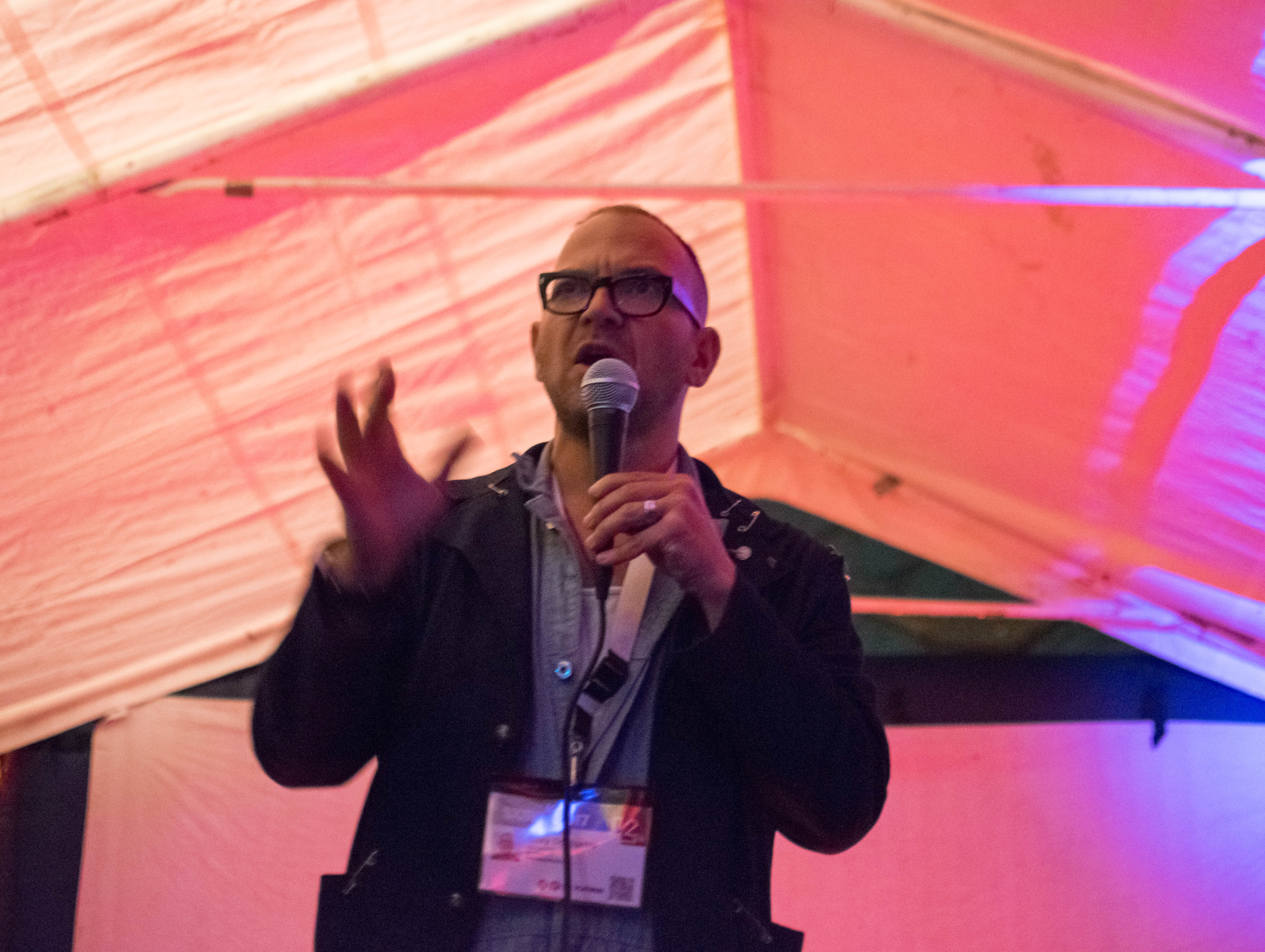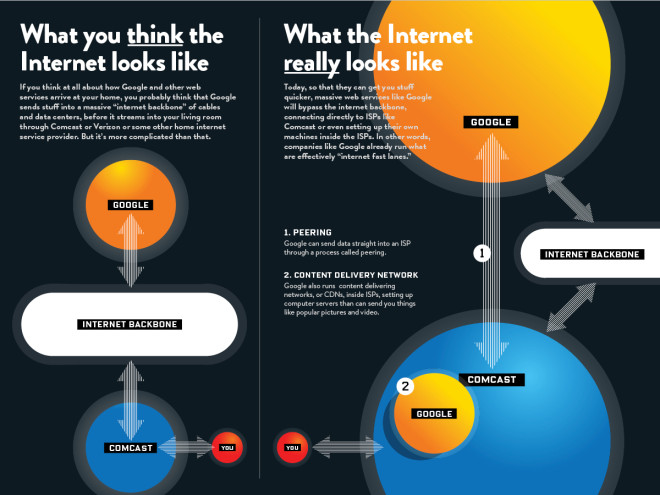If you have visited http://www.disruptj20.org/, there’s something you should know. The Department of Justice has a warrant out for your name, IP address, home address, email address, and telephone number.
Not only that–the DOJ wants to know what software you have on your computer. They want to know which pages you visited on the site, and how long you stayed. If you left a message on the website, the DOJ wants to know the contents. If you emailed anyone through the website, the DOJ wants to read it. If the website ended up with your photograph, the DOJ wants to use it to match a face to your name. If you have a business, the DOJ wants to know all about it. If you have a credit card, the DOJ wants the number.
Why are you a person of interest? Because you visited a website. No more. No less.
Do you think this warrant couldn’t possibly be real?
The DOJ served the web host provider Dreamhost with the warrant in July. Guess what organization is working with Dreamhost to resist the DOJ’s unlawful warrant?
If you guessed the EFF, you are correct:
“[W]e’ve been helping DreamHost since they received this search warrant. The general counsel of DreamHost was, frankly, shocked at the overbreadth of this search warrant and called us right away and said, you know, ‘Is there a way for us to fight it?’ And we said, ‘Yeah, absolutely.’ DreamHost got paid outside counsel, so they didn’t—they didn’t need us, because, as a nonprofit, we work pro bono, and we generally don’t represent companies who can afford outside counsel. DreamHost got great outside counsel, filed a motion in D.C. to set aside the search warrant. And it’s my understanding, at least, that there will be a hearing today on the case…
“The D.C. Superior Court judge who signed off on the search warrant is not young. And it’s my speculation, my uninformed speculation here, that the judge who signed the search warrant didn’t understand what he was signing off on. The search warrant itself puts all the juicy bits that the government is seeking in an attachment at the end. And in the places-to-be-searched and things-to-be-seized section of the search warrant, it just says, ‘records identified with DisruptJ20.org.’ If I’m a judge who doesn’t know an IP log from a Yule log, you know, I’m not going to understand the implications of what’s actually being sought here. The government, of course, in its order to show cause against DreamHost for refusing to turn over—for, thankfully, refusing to turn over all of this data, the government says, ‘You know, this is standard. We do this all the time.’ That may be what they told the judge, even though it’s patently false.”
EFF-Austin is deeply proud to stand with our parent organization and Dreamhost.
The Dreamhost warrant appears to have been part of a rash of similar warrants indiscriminately served to internet companies in response to the 2017 Inauguration Day protests. More is known about this particular warrant because Dreamhost has publicly and heroically refused to comply.
1.3 million people have individually visited the Disrupt J20 website. Every single one of them will have a DOJ dossier if Dreamhost complies. For visiting a website.
What justification could the DOJ possibly cite as justification for this overreach? Glad you asked!
To quote Attachment B, section II of the warrant, they claim the identifying information “constitutes fruits, evidence and instrumentalities … involving the individuals who participated, planed [sic], organized, or incited the January 20 riot.”
I’m not sure how you plane a riot, but there you have it.
So, to recap, if you visited this website, the DOJ thinks you might have been part of a riot, which can result in a felony conviction. Since 1.3 million individual people visited the website, you have a lot of potential co-conspirators who are facing the same potential consequences.
Did the Disrupt J20 website coordinate a riot? All signs point to no. What the DisruptJ20 site did do is help protesters participate in nonviolent direct actions.
On January 20, 2017, several thousand people gathered in Washington, D.C. to protest the inauguration of Donald Trump, and the vast majority of protesters were peaceful. Approximately 2,400 of these peaceful protesters engaged in nonviolent direct actions organized through the group Disrupt J20. The nonviolent actions included protestors standing and sitting at security checkpoints to impede the ability of others to attend the inauguration. These direct actions were not rioting.
Rioting is getting a group together to hurt people and break stuff, preferably at a high volume. The vast majority of protesters, including those who visited the Disrupt J20 site, did not riot.
Some people did engage in vandalism on Inauguration Day. You can argue that this is technically rioting because a large group of people broke things at high volume. In an interview on this story, EFF’s own senior staff attorney Nate Cardozo says, “You know, there was some petty vandalism or whatever.”
The content of this warrant is damning all by itself. But we need to look at the bigger picture to get a clear sense of governmental response to the Inauguration Day protests. And to do that, we need to look at what happened to at least some of the people who did engage in vandalism on that day. And we need to look at what happened to the people standing next to the vandals.
What happened to the vandals breaking stuff and yelling? They got tear gassed, pepper sprayed, and subjected to a concussive device. Then the cops clashed with them and arrested every last one of them. What happened to the people standing next to the people breaking stuff and yelling? They also got tear gassed, pepper sprayed, subjected to a concussive device, and arrested.
And when the dust cleared, there were roughly 230 people in custody.
Some of these 230 people were vandals. Some were medics. Some were standing in the wrong place at the wrong time. Nine of them were journalists.
You aren’t supposed to arrest journalists. Journalists have to get close to the action to report on it. This is their job. You shouldn’t arrest people for doing their jobs. If you do arrest people for doing their job, it means you don’t want them to do their job and you’re willing to break the law to stop them.
All of the arrested protesters, including journalists, were charged with felony rioting. This is Washington, D.C.’s most serious rioting charge. It carries a sentence of up to ten years in prison for doing it once.
Seven of the journalists have since been released. Two have not. Their names are Aaron Cantu and Alexei Wood.
Aaron Cantu is an editor at The New Inquiry, writes for the Santa Fe Reporter, and has contributed pieces for Vice, Al Jazeera America, The Intercept, and other publications. Alexei Wood, an independent photojournalist based in San Antonio, livestreamed the entire day of protests to Facebook. The livestream footage does not show Alexei Wood engaging in any illegal activities. The footage also shows him cooperating with police officers during his arrest.
Despite their credentials and the evidence available, Alexei Wood and Aaron Cantu are still being prosecuted.
And they are not alone. 215 other people are also still being prosecuted on counts of felony rioting, destruction of property, and conspiracy to riot. Every defendant risks facing the next 75 years behind bars if convicted.
How much of this seems lawful to you?
Contrast the treatment of the DC protestors with the government and law enforcement reaction when white supremacists marched around physically attacking and killing people in Charlottesville. That is to say, they rioted. Did the police deploy tear gas, pepper spray, and a concussive device before clashing with and arresting every last one of them? No.
Somehow I remember the neo-Nazi riot. But I don’t remember the police deploying any tear gas, pepper spray, or concussive devices. I don’t remember the police clashing with rioters. I don’t remember any mass arrests.
There were arrests in Charlottesville, mind you. Eight people have been arrested.
Eight.
Also: remember when our president made not one but two impassioned, improvised defenses of the Inauguration Day rioters? Remember when he said there were a lot of good people wearing black bandannas on that day? Remember when he remarked to staffers after that he felt liberated by expressing himself thusly?
Yeah, I don’t remember that either. I remember a few other things though.
I do remember the president defending neo-Nazis this week.
I do remember the president inciting audiences to violence at his rallies.
I do remember the president urging police to use unnecessary violence in performing arrests.
I do remember the president telling us almost every day that the news is fake. That it cannot be trusted. That only he can be trusted. And that he is wonderful.
What does any of this have to do with the Dreamhost warrant?
Let’s recap.
Our new president likes himself. He likes neo-Nazis. He likes it when his audiences hurt people in his name. He likes police brutality. He hates journalists.
On the day our new president was inaugurated, several thousand people protested in Washington, D.C. A smaller group of those people engaged in petty vandalism. The police immediately and brutally subdued and arrested 230 people in the area, a number that included bystanders and nine journalists. 215 of those people are awaiting trial and face 75 years in prison per person. Two of those people are journalists.
This is not how you respect freedom of assembly. This is not how you respect freedom of speech. This is not how you respect freedom of the press. This is not how you respect the concept that people are innocent until proven guilty. This is not how you respect the concept of appropriate punishment.
2,400 different people were with an organization called Disrupt J20. Those 2,400 people protested peacefully. They sat, they stood, they walked, they tabled. That’s it. Those things aren’t felonies.
If you were a prosecutor, would you find this interesting?
The Department of Justice does. They want all identifying information, not just for the 2,400 peaceful and law-abiding protesters, but for the 1.3 million people who visited their website. They say all 1.3 million visitors conspired to riot.
Do you think all 1.3 million visitors conspired to riot? More than that: do you think any of them did?
What do you think the Department of Justice is going to do with your information? Do you think the DOJ deserves to have your information?
EFF doesn’t, either. That’s why EFF is working hard to assist Dreamhost’s urgent, lawful, and ethical resistance to the warrant. To protect our nation and to protect you.
It can be easy to forget why digital liberties are important. This is why. As we conduct more and more of our lives online, digital liberties become civil liberties. And this is why EFF is important. Because digital liberties issues are not just digital liberties issues. They are civil liberties, too.





